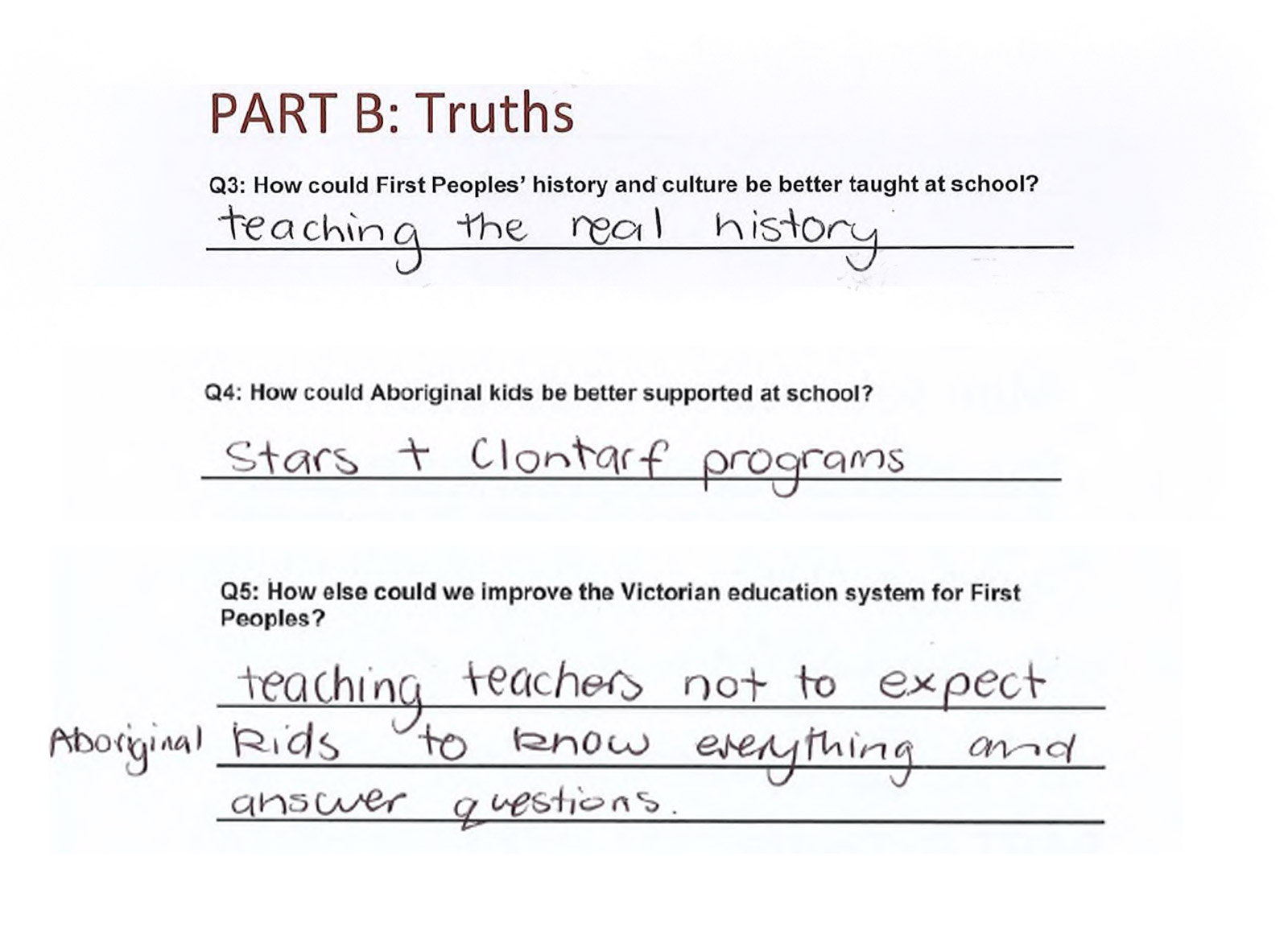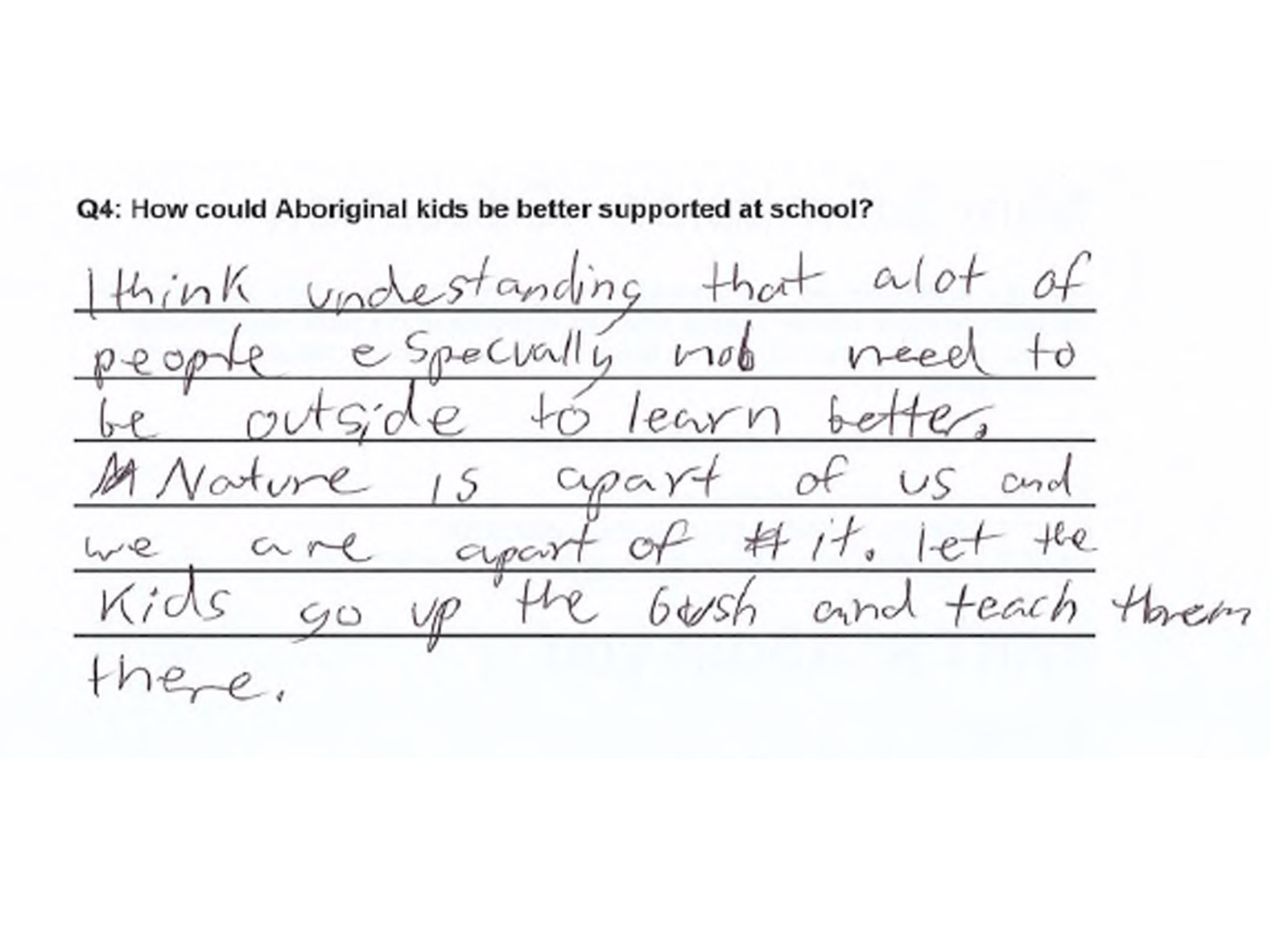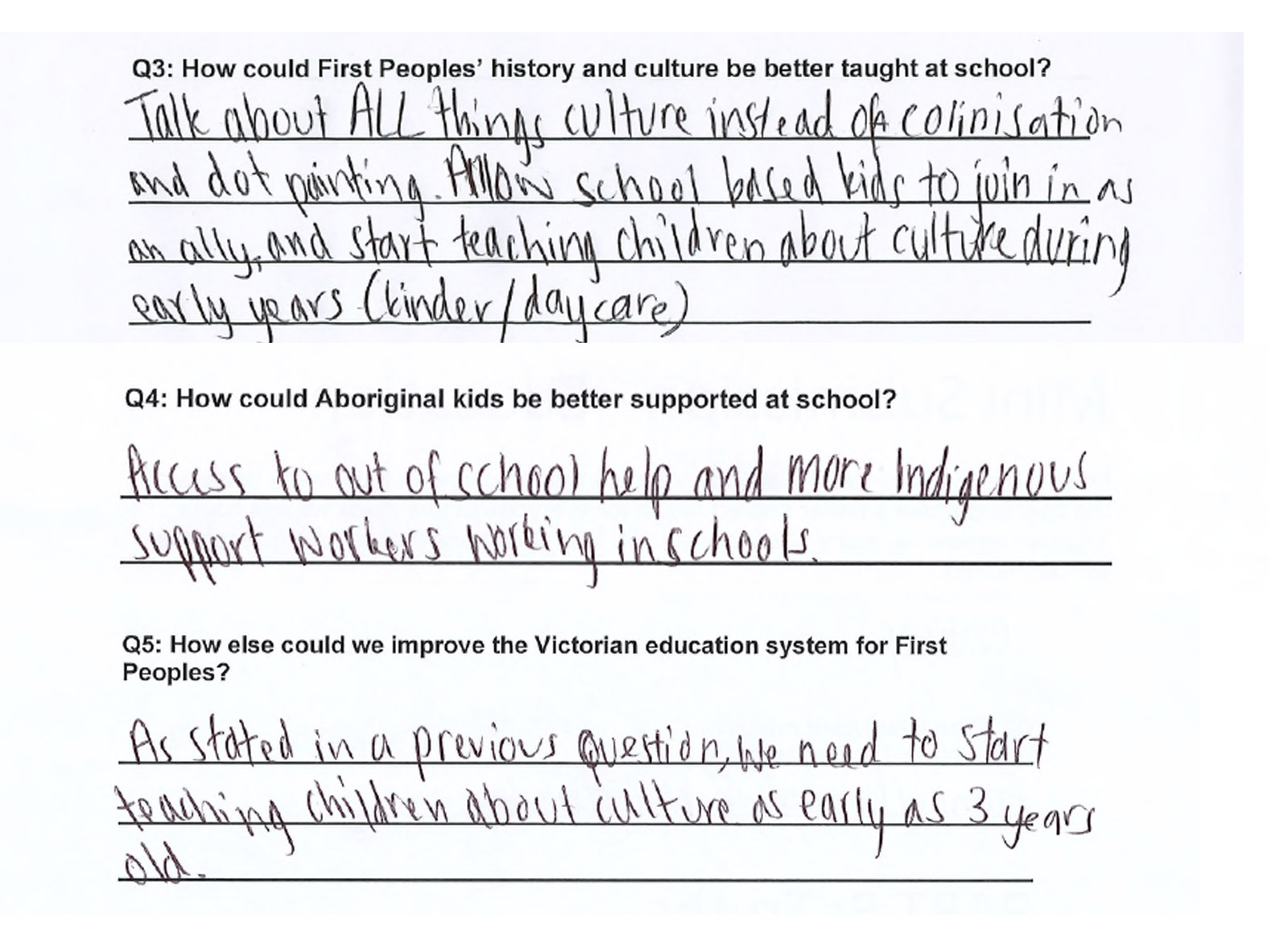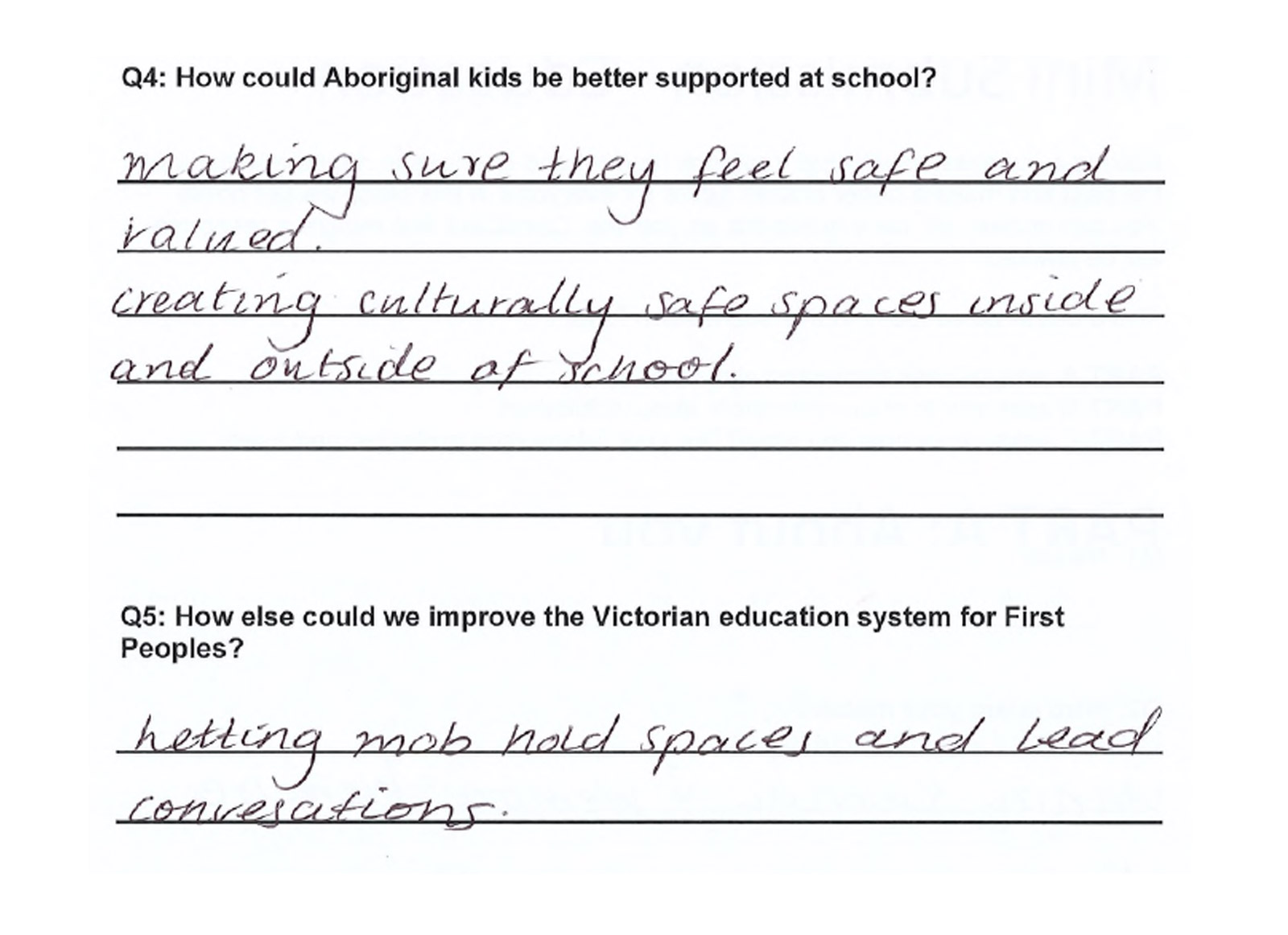Submissions Library
Please be aware that some of the content on this page contains potentially offensive or controversial material. If you are affected by the content and would like support, please contact 13 YARN on 13 92 76 or Lifeline on 13 11 14.
Yoorrook reserves the right not to publish all or part of a submission if it considers it inappropriate to do so. By publishing a submission, Yoorrook expresses no opinion about the content or accuracy of the submission or material referred to in the submission. Submissions are not published where the person making the submission has asked that it be kept confidential.
Filter
Keyword
Showing
Submission – Ngaweeyan Maar-oo
Ngaweeyan Maar-oo, meaning “Voice of and from the people” in Gunditjmara dialect, is the Victorian Government’s implementation partner and shared-decision making body under the National Agreement on Closing the Gap (National Agreement).
This submission aims to build on and further explore the issues raised in the verbal testimony of the Ngaweeyan Maar-oo co-chairs and Executive Director. In particular, this submission:
- provides an overview and stocktake of the National Closing the Gap Agreement
- provides direction to the Victorian Government on next steps in activating the Productivity Commission Review into the National Closing the Gap Agreement recommendations
- makes further recommendations to draw on the Victorian experiences and challenges implementing the National Agreement
- coordinates a statewide collective position on behalf of the Ngaweeyan Maar-oo memberships individual recommendations made through their submissions to Yoorrook Justice Commission
Submission – Sherry Balcombe
Aunty Sherry Balcombe is a Ocala and Muluridji woman of the Gunjan and Djabugay nations.
In this submission, Aunty Sherry Balcombe reflects on how lucky she was to be educated and have great community support. She expresses her desire to give back to the Aboriginal community and her hopes for change for Aboriginal children to reduce the number who are institutionalised or end up in jail.
Submission – Anonymous 622
This submission highlights instances of racism against First Peoples, both towards teachers and students within the education system.
Submission – Matthew Leeder
Mathew Leeder is a proud Palawa and Dja Dja Wurrung man.
This submission is a transcript of Matthew discussing his experiences in residential care, hospitals, and psychiatric settings. It also includes reflections on the changes he would like to see and his hopes for the future of Aboriginal people
Submission – Deone West
Deone West is Pajong, Wiradjuri and Gundungarra.
Deone’s submission talks about the importance of First People’s culture and history being taught by First Nations people to avoid teaching through a colonised lens. The submission talks about funding as a barrier.
Submission – Voices of Aboriginal Students from the Eastern Suburbs
This submission is from a group of Aboriginal students from the eastern suburbs.
The submission was developed across two sessions in April and May 2024 considering the question, how could First Peoples’ history and culture be better taught at school? The responses include:
- Focus on strengths and the present not just negatives and the past
- Improved Training for Teachers
- Creative Approaches to Learning
- Build Safe Spaces within the School
- Inappropriate comments at school
- Why it is hard to report issues
